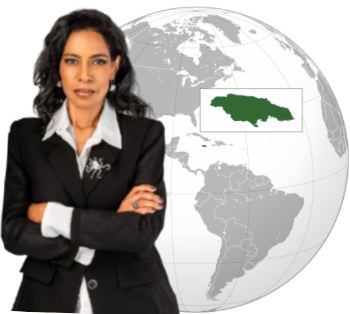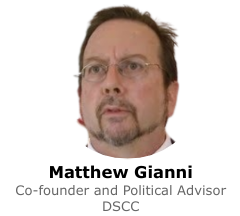|

International Seabed Authority's Secretary-General Leticia Carvalho
Leadership Change at the ISA: A Critical Moment for Ocean Protection
 JAMAICA JAMAICA
Tuesday, March 18, 2025, 08:00 (GMT + 9)
Kingston - Over the next two weeks, States will convene at the International Seabed Authority (ISA) Council meeting in Jamaica to continue negotiations on controversial deep-sea mining, under new leadership in the form of Secretary-General Leticia Carvalho.
This change in the ISA’s leadership presents an opportunity for States to reconsider what is required of the ISA in a time where multilateralism, environmental protection and global equity are more important than ever.
.png) At the meeting, the Deep Sea Conservation Coalition (DSCC) is calling for nations to advance a moratorium on deep-sea mining and resist industry pressure to adopt a flawed Mining Code and open the deep-sea to an extractive activity of unprecedented scale and risk. At the meeting, the Deep Sea Conservation Coalition (DSCC) is calling for nations to advance a moratorium on deep-sea mining and resist industry pressure to adopt a flawed Mining Code and open the deep-sea to an extractive activity of unprecedented scale and risk.
Sofia Tsenikli, Deep-Sea Mining Moratorium Campaign Director, DSCC, said: “ISA Member States need to stand firm against the unacceptable pressure by an industry that risks wreaking irreparable damage on our ocean and exacerbating the planetary crisis.
“The welcoming of a new Secretary-General presents a unique chance for the ISA to reset its course. Instead of turning the deep ocean into a space for mineral competition, we urge States to adopt a moratorium on deep-sea mining and make the governance of the deep sea an example of global collaboration and science for the benefit of all humankind – at a time when it is most needed.”
.png) During the two-week Council meeting, ISA Member States will continue to debate the draft Mining Code, which fails to provide environmental safeguards for the deep-sea and is riddled with gaps and outstanding matters. The meeting is held against the backdrop of increasing pressure from a deep-sea mining company seeking to submit an application to the ISA this summer. Mining companies are now pushing for States to decide on the evaluation process in the absence of a Mining Code, in a blatant attempt to exert pressure with the goal of exploitation as soon as possible. During the two-week Council meeting, ISA Member States will continue to debate the draft Mining Code, which fails to provide environmental safeguards for the deep-sea and is riddled with gaps and outstanding matters. The meeting is held against the backdrop of increasing pressure from a deep-sea mining company seeking to submit an application to the ISA this summer. Mining companies are now pushing for States to decide on the evaluation process in the absence of a Mining Code, in a blatant attempt to exert pressure with the goal of exploitation as soon as possible.
Emma Wilson, DSCC Policy Officer, said: “We are expecting it to become very clear at the March meeting that the Mining Code will not be adopted any time in the near future. There are over 2000 textual elements that are still under debate, as well as numerous major outstanding issues, ranging from the benefit-sharing mechanism, to contractor liability, to the need for a General Policy for the protection of the environment. At this meeting, pro-mining States are  requesting to establish a process for assessing a mining application in the absence of a Mining Code. We urge ISA Member States not to be pressured into any hasty decisions that would open the gates to mining going ahead in such a high-risk environment.” requesting to establish a process for assessing a mining application in the absence of a Mining Code. We urge ISA Member States not to be pressured into any hasty decisions that would open the gates to mining going ahead in such a high-risk environment.”
Calls to halt deep-sea mining are escalating worldwide. Thirty-two governments are calling for a moratorium, precautionary pause or ban, along with Indigenous groups, scientists, businesses, the financial sector, human rights leaders, fishers and many civil society organizations. Their calls are backed by a consensus of independent scientists asserting that there is currently no way to avoid widespread environmental harm if the ISA permits deep-sea mining. Recent independent research published in March 2025 also confirms, once again, that extending mining into the ocean is not needed to support the green transition.
.png) Matthew Gianni, DSCC’s co-founder and Political Advisor, said: “The industry faces massive technical hurdles, high operating costs, mounting regulatory and liability risks, and unpredictable prices for metals that the world doesn’t even need to source from the deep seabed. Yet several companies are demanding that the ISA establish regulations to allow them to deep-sea mine in international waters to attempt to make a profit at the expense of ocean health. The economics simply do not support deep-sea mining as a viable or sustainable industry. Deep-sea mining is about greed, not need.” Matthew Gianni, DSCC’s co-founder and Political Advisor, said: “The industry faces massive technical hurdles, high operating costs, mounting regulatory and liability risks, and unpredictable prices for metals that the world doesn’t even need to source from the deep seabed. Yet several companies are demanding that the ISA establish regulations to allow them to deep-sea mine in international waters to attempt to make a profit at the expense of ocean health. The economics simply do not support deep-sea mining as a viable or sustainable industry. Deep-sea mining is about greed, not need.”
Duncan Currie, DSCC Legal Adviser, said: “We expect Member States to fulfil the conditions required to uphold the effective protection of the marine environment, applying the precautionary principle, before deep-sea mining is even considered. A moratorium is not only permitted but a legal requirement. Under a precautionary pause or moratorium, there is strong potential for the ISA to evolve in a way that responds to the challenges and opportunities of the 21st century.”
editorial@seafood.media
www.seafood.media
|



